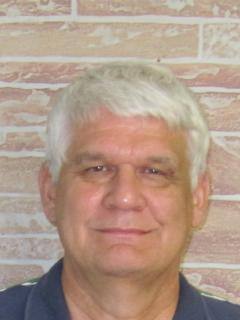JL: There are Indians today who are using the terms genocide and ethnic cleansing--but in regards to the whites. The whites committed genocide; the whites committed ethnic cleansing. But if you look at the Dakota warfare, they were attacking across the frontier. Not just Milford, but Lake Shetek, Randall County, way up toward Fort Ripley, that direction. They were attacking across the frontier, and some of them were killing everybody. And if that isn't ethnic cleansing -- I don't know what is. If I could say I was qualified to be an expert, I would say: yes both were, or one wasn't and one was, I don't know. All I'm saying is that it's very similar. And if you look at it, Indians were forced marched to Mankato. The Indians taken to Fort Snelling were not forced marched. It took about seven days to travel that, maybe a hundred and forty miles, twenty miles a day. That's not a great distance to travel and there was food along the way. But compare that to the people who were taken captive by the Dakota Indians near St. Peter around Milford/New Ulm area, and force marched up the river to Camp Release. There was another forced march that nobody talks about. It's very similar to both sides, and that's why I'm saying that I believe the key is understanding -- treating everybody respectfully and truthfully. And I think it's got to start with Minnesota Historical Society. This year—2012 even-- I hope it will go back to history roots. Take the politics out of it and deal with it from a historical aspect.
Take the politics out of it and deal with it from a historical aspect
Take the politics out of it and deal with it from a historical aspect
Mr. LaBatte talks about how to educate people about the U.S.-Dakota War.
Audio Chapters
DL: If you had a magic wand, what would you wish for the Dakota people today?
JL: I believe they need the understanding. They need the education, or books; people that are telling them what happened here without embellishment, without trying to get them to be angry about what happened. I think that especially younger people need to understand what it is that happened without anger and without hate. But I am afraid that there are too many people in the Dakota Indian communities now that are speaking out in anger and hate. I should say, those that are speaking out are speaking out with anger and hate. A lot of people, even within my family, I would say, if you know they aren't telling the truth why don't you say something? “Well, we don't have to because we know they're not telling the truth.”
Permissions beyond the scope of this license may be available at Copyright and Use Information.
Oral History- Interview | Narrator John LaBatte Interviewer Deborah Locke made in New Ulm, MN | Tuesday, May 31, 2011
Read or listen to entire Oral History

Other Stories by Narrator
- Take the politics out of it and deal with it from a historical aspect
- I believe that Little Crow was a reluctant leader
- The notion is that if you're Christian you can't be an Indian
- Some people call it a clash of cultures. I don't, that's too general
- I see errors in Minnesota Historical Society's signs and books
- Do you think they would have stopped to have trials?
- Education needs to tell the truth about what happened
- I believe in understanding on both sides
- Two of my grandfathers were sentenced to hang at Mankato
- Where did the Dakota Indian get their land?
- That whole process is very complicated
- They're still fighting the Dakota War among themselves
